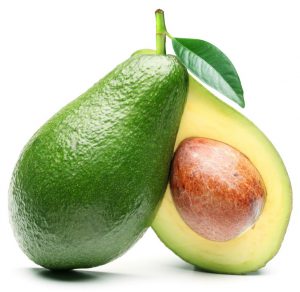One of the most effective ways to reduce stress, limit fatigue and prevent illness is by consuming a variety of wholesome, nutrition-dense foods. Yet there are times when life throws a curve ball (or 10) and, no matter how wholesome your everyday diet is, you can find yourself feeling drained and struggling to find the energy for the most medial tasks.
You’re not alone! A majority of people experience fatigue at some point in their lives, and whether it’s an acute (short term) or chronic (long term) condition, it needs to be addressed as soon as possible to avoid leading to greater health issues. Fatigue affects up to 90% of people across the globe and contributes to many of the modern day health issues we see in practice every day including excess weight, mood disorders, reproductive issues, food sensitivities, stimulant addiction and food cravings for example.
As a practicing nutritionist, I’m constantly guiding people to better health. So when I started to notice my own symptoms of adrenal fatigue arise, it was time to practice what I preach and ‘reset’ my diet and lifestyle. Within 3 days of making small dietary changes I noticed an incredible difference to my energy levels and overall health, and plan to stick to the fatigue-busting diet for at least 21 days, allowing the ample time for my body to heal, ditch cravings and regain balanced energy and clarity.
Common symptoms of adrenal fatigue include, but are not limited to :
- Very slow to start in the morning, even after a full night of rest
- Cravings for salty and sweet foods
- Craving stimulants (caffeine, sugar etc)
- Feeling of a ‘second wind’ in the early evenings
- Lowered libido
- Weakened immune system
- Difficulty staying asleep
- Headaches and body aches
- Inflammation
- Mood swings
- Difficulty losing weight
Some foods and nutrients are particularly outstanding for supporting, nourishing and healing the body with ‘burn out’ ~
- Probiotic and prebiotic foods for gut health (heal from the gut, up) – such as unsweetened yoghurt, kefir, sauerkraut, kimchi, unfiltered apple cider vinegar
- Nourishing fats to support the nervous, immune and endocrine systems – up to 4 serves p/day- including avocados, nuts, seeds, butter, coconut, extra virgin olive and macadamia oils

- Seasonal vegetables and fruits – up to 6 serves per day – fresh is best and opt for colourful, with plenty of green leafy and sea vegetables and sulphur-rich vegetable such as onion, garlic, asparagus and brussel sprouts
- Nurient dense proteins – up to 3 serves per day – The most nutrient dense meats are grass-fed meats, all cuts and including offal; organic eggs, oily wild fish and seafoods, and organic tempeh
- Herbal teas and fresh water – min 2 litres per day – try chamomile, rooibos, dandelion and lavendar
- Herbs and spices – include tumeric & garlic for their antinflammatory and antibacterial proterties, cinnamon to help balance blood sugar levels and raw cacao for a rich dose of magnesium, zinc, calicum and iron.
- Sunshine and fresh air – for Vit D & oxygen (and more)
- Supplements to support include Quality Practitioner Brand Probiotics, Vit C and Zinc, Magnesium, Chromium, B Complex, Vit D and concentrated EPA/DHA
A Nutrigenomics DNA Test will indicate your individual daily requirements for the macro nutrients, vitamins and minerals mentioned above. I followed my DNA results to maximise the quickest and most efficient recovery.
Just as there are foods to support and nourish the body through fatigue, there are some that will promote fatigue – in particular if environmental factors have caused fatigue. And in most cases, these are the foods that many crave when they’re ‘burnt out’ ~
- Caffeine – Undoubtedly one of the hardest item to kick when you’re fatigued, alongside sugar. But it’s a must if you’re wanting to reset and calm the nervous, immune and endocrine system to heal fatigue symptoms. Coffee, black or green teas, soft drinks/sodas, chocolates all contain caffeine

- Refined sugars – just like caffeine, sugar adds to the problem even though it may feel like the only sweet bit of soul keeping you going through the day. It adds stress to your nervous system and adrenals, depletes your immune system, damages your gut, teeth and everything in between, plus welcomes inflammation and weight issues. Bottom line – any sweet item that comes prepackaged, forget about it
- Artificial sweeteners – avoid those chemical cocktails that damage the nervous system and gut
- Take away foods – also a hard one to kick when you’re too tired to prep food/cook. But the majority of T/A menus aren’t nutrient dense and often filled with cheaper oils, meats/alternatives and very few nourishing vegetables
Take one day at a time to reset and kick fatigue, and try not to consider the dietary changes as a ‘diet’, that’ll only put you in the mind frame of deprivation. It is simply the removal of stimulants and inflammatory foods and higher inclusion of those nutrient-dense foods.
If you have any questions, please don’t hesitate to get in touch or comment below.
Tracie x
Tracie Connor is an accredited nutritionist & media spokesperson specialising in womens health, food allergies, weight management and fertility. Regularly featured in the Sydney Morning Herald, Womens Health & Fitness Magazine, Huffington Post and on ABC Radio. Based in Brisbane, Australia with health fund rebates available on services.

